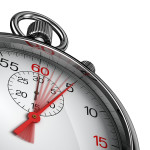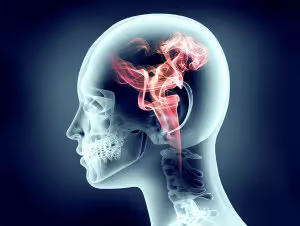Table of Contents
Ashwagandha (Withania somnifera) is one of the most powerful herbs powerful Ayurvedic herbs in healing. One of the main benefits of Ashwagandha is its remarkable stress-relieving properties. And stands shoulder to shoulder with some of the most potent drugs used to treat depression and anxiety.
In Sanskrit, Ashwagandha means “smell of horse”. Meaning this herb imparts the strength and vigor of a stallion.
Ashwagandha is native to India, Pakistan and Sri Lanka. And is now being grown in other regions including the United States.
Ashwagandha extracts helps protect your central nervous system and maintain brain health. It is a promising alternative for aging and neurodegenerative pathologies treatment including Alzheimer’s and Parkinson’s.
As an antioxidant, Ashwagandha seeks out and destroys free radicals. Free radicals have been implicated in many age-related diseases. There’s even some emerging evidence that Ashwagandha offers anti-cancer benefits
for brain tumors. Even though so much is out there stating that the active principles and underlying molecular mechanism (s) remain largely unknown for this ancient Ayurvedic herb.
Get ready to explore how Ashwagandha benefits your brain because we will go as deep as possible.
Ashwagandha helps:
- Reduce Stress: Ashwagandha helps reduce anxiety and depression. It reduces the stress hormone cortisol, lowers blood sugar levels, and improves lipid profiles.[i]
- Neuronal Regeneration: Ashwagandha helps regenerate axons and dendrites of brain nerve cells. And helps reconstruct synapses, the junctions where nerve cells communicate with other cells.[ii] Boosting memory and restoring neural networks affected by neurodegenerative disease.
- Neurotransmitters: Ashwagandha extract inhibits acetylcholinesterase. The enzyme responsible for breaking down the key neurotransmitter acetylcholine.[iii] Boosting memory, learning and cognition.
Overview

Ashwagandha (Withania somnifera) is one of the most powerful herbs in Ayurvedic healing. This Indian traditional home medicine as an herbal remedy has remarkable anti-depressant qualities. And has been shown to be as good as many prescription pharmaceuticals in treating depression and anxiety.
Ashwagandha is often referred to as “Indian ginseng” because of its rejuvenating properties. But botanically, Ashwagandha and ginseng are unrelated.
Native to India, Pakistan and Sri Lanka. Ashwagandha is now being grown in other regions including the United States.
Ashwagandha is in the same family as the tomato. It’s a small woody shrub with oval leaves, and five-petal yellow flowers. The fruit is red and the size of a raisin. The plant is also known as the “Winter Cherry”.
Ashwagandha is known as an adaptogen. Which means it helps your body adapt to stress, both mental and physical.
The Indian Materia Medica lists Ashwagandha for:
- general debility
- impotence
- general aphrodisiac purposes
- brain fatigue
- low sperm count
- nervous exhaustion
- where general vigor must be restored.
Ashwagandha extract has been shown to be an effective antioxidant in the brain. Clearing the cellular waste implicated in Alzheimer’s Disease.[iv]
Is also boosts memory and cognition. By reducing stress and increasing acetylcholine. And regeneration of nerve networks in the brain.
How does Ashwagandha Work in the Brain?
Ashwagandha boosts brain health and function in several ways. But two in particular stand out.
- Ashwagandha enhances GABA receptors and regulates serotonin in the brain. It appears to work on neuron receptors, enabling GABA to connect easier. This inhibits the signals present under a stress response in the brain. Anxiety is reduced.
A study was conducted at The Canadian College of Naturopathic Medicine with 75 volunteers with moderate to severe anxiety. Ashwagandha produced a significant decrease in anxiety levels over the control group.[v]
- Ashwagandha improves cognitive and psychomotor performance in a healthy brain.
Researchers at Nizam’s Institute of Medical Sciences in Hyderabad, India worked with 20 healthy male volunteers. In this double-blind, placebo-controlled trial participants were given 250 mg capsules of standardized Ashwagandha extract for 14 days.
Significant improvements in reaction time were reported at the end of the trial. The study suggests that Ashwagandha extract improves cognitive and psychomotor (physical reaction) performance even when you’re in the best of health.[vi]
How things go bad
Chronic stress and cortisol can damage your brain. Neuroscientists at the University of California, Berkeley found that chronic stress triggers long-term changes in brain structure and function.[vii]
Chronic stress changes neural networks. Cortisol creates a domino effect that hard-wires pathways between the hippocampus and amygdala. (The amygdala (lizard brain) is the area responsible for your fight-or-flight response).
This hard-wiring caused by stress is not the way the brain was designed. But chronic, ongoing stress tricks the brain into rebuilding circuits and hunkering down for the long haul.
This re-wiring appears to be permanent. Unless you intervene with something like Ashwagandha.
 Chronic stress seems to ‘flip a switch’ in stem cells in the brain. And turns them into a type of cell that prevents connections to the prefrontal cortex. Preventing improved learning and memory.
Chronic stress seems to ‘flip a switch’ in stem cells in the brain. And turns them into a type of cell that prevents connections to the prefrontal cortex. Preventing improved learning and memory.
And laying down the scaffolding linked to anxiety, depression and PTSD (Post Traumatic Stress Disorder).
↓ Chronic stress coats neurons in myelin
↓ Chronic stress reduces the number of neurons
↓ Gray matter decreases and white matter increases.
Under conditions of chronic stress and excess cortisol, your brain’s neurons are coated (or sheathed) in myelin.
Under healthy conditions this “sheathing” is a protective measure. But this excessive sheathing is likely an evolutionary measure made to reinforce the connection between the hippocampus and amygdala. Improving the fight-or-flight response during extended periods of threat or attack.
In the modern world, chronic stress hijacks your fight-or-flight response system. It backfires in daily life in which you are not in physical danger.
Ashwagandha benefits
Ashwagandha undoes damage to the brain caused by chronic stress. And helps keep it healthy.
Ashwagandha has such beneficial activities for cognitive function. Glycowithanolides, one of the many compounds found in Ashwagandha, reduces cortisol. And overall energy levels are enhanced through optimizing mitochondrial function.
It also has GABA-mimicking effects in the brain. Comparable to the effects of prescription benzodiazepines like lorazepam (Ativan).
Ashwagandha can also help prevent and repair damage caused by Alzheimer’s, Parkinson’s and Huntington’s disease. Through its antioxidant and inflammation-reducing mechanisms.
Ashwagandha even provides protection and regeneration of neurons during opiate and heroin withdrawal. And eases withdrawal symptoms.
 In Ayurvedic medicine, Rasayana herbs are used to promote a youthful state of physical and mental health. The ancients considered Medhya Rasayana herbs to be working with higher brain function. These are mind-rejuvenating herbs.
In Ayurvedic medicine, Rasayana herbs are used to promote a youthful state of physical and mental health. The ancients considered Medhya Rasayana herbs to be working with higher brain function. These are mind-rejuvenating herbs.
Of the 8 or 9 most cherished herbal remedies, Ashwagandha is the highest or most prominent of Ayurvedic Rasayana herbs. Acting as an adaptogen, rejuvenating the nervous system, and boosting the body’s resilience to stress.
How does Ashwagandha feel?
Ashwagandha users report:
-
- Ashwagandha as a stress-reliever. If you are experiencing severe fatigue and brain fog, it’s likely stress. Chronic or severe stress can disguise itself in many ways. Including feeling abnormally fatigued. You find that you are not sleeping well. Or don’t feel rested and refreshed when waking up in the morning. Even after taking a sleeping pill. Many report a rapid change in energy and motivation as soon as they take Ashwagandha. Others won’t feel the effects for a couple of weeks before relief sets in. You’ll know Ashwagandha is working when you wake up in the morning feeling refreshed. And eagerly looking forward to starting your day.
-
- Ashwagandha as an anti-anxiety aid. As an anti-anxiety aid users say they feel their self-confidence has been restored. Your speech will feel more fluid and easier, especially in public settings. No more panic attacks.
- Ashwagandha as an antidepressant. Depression, even if it’s not professionally diagnosed, can destroy your life. Ashwagandha users say it is the best antidepressant they’ve ever used. Their energy is restored, motivation is back, and they’re able to focus.
Ashwagandha works on many levels in the brain. Cortisol levels are stabilized. And the damage to your brain begins to correct itself. Acetylcholine levels rise so you’re able to think clearly again.
Neurons get repaired, and cognition and memory return to levels you experienced when you were younger. And GABA receptors are re-activated producing a calming effect.
Ashwagandha Clinical Research
Researchers at Asha Hospital in Hyderabad, India did a double-blind, randomized, placebo-controlled trial with 64 subjects who had a history of chronic stress. The study group took a 300 mg capsule of full-spectrum Ashwagandha root twice a day for 60 days.
Follow up calls to participants were done on the 15th, 30th, 45th and 60th day of the trial. Researchers reported serum cortisol levels were substantially reduced.
 The report concluded “that a high-concentration full-spectrum Ashwagandha root extract safely and effectively improves an individual’s resistance towards stress and thereby improves self-assessed quality of life”.[viii]
The report concluded “that a high-concentration full-spectrum Ashwagandha root extract safely and effectively improves an individual’s resistance towards stress and thereby improves self-assessed quality of life”.[viii]
Ashwagandha as a nootropic
One study done in a lab in India subjected laboratory mice to electroconvulsive shock treatment. Or were given scopolamine to induce amnesia (memory loss).
Both sets of mice were given Ashwagandha extract daily after the shock or chemical treatments. Ashwagandha extract restored their memory and motor skills.[ix]
Ashwagandha as an antidepressant
Scientists did a study on rats to compare Ashwagandha with the popular benzodiazepine antidepressant lorazepam (Ativan). And the tricyclic antidepressant imipramine (Tofranil).
Researchers gave the rats either Ashwagandha, lorazepam or imipramine. 30 minutes later they put the rats through a maze, had them interacting socially, and even forced them to swim.
They concluded that as a mood stabilizer, Ashwagandha worked on depression and anxiety as well as either of the two antidepressants.[x]
Ashwagandha Dosage
Ayurvedic Pharmacopoeia of India recommends 3 – 6 grams daily of standard ground Ashwagandha powder.
- For arthritis: 250 – 500 mg of extract (4-5% withanolides)
- For antioxidant protection: 100 – 200 mg of extract (4-5% withanolides)
- For immunity: 100 – 200 mg of extract (4-5% withanolides)
- For relaxation: 250 – 500 mg of extract (4-5% withanolides)
- For stress: 250 – 500 mg of extract (4-5% withanolides)
- For sexual performance: 250 – 500 mg of extract (4-5% withanolides)
For higher Ashwagandha doses like 500 mg, take 250 mg in the morning and another 250 mg early afternoon. And note the distinction between standard ground Ashwagandha powder and an extract. The extract is much more concentrated.
Ashwagandha Side Effects
Note: Ashwagandha stimulates your thyroid hormones. So if you are hypothyroid, use Ashwagandha with caution. And check with your endocrinologist to be safe.
Ashwagandha is non-toxic at moderate doses. If you are pregnant do not use Ashwagandha as it could cause a miscarriage. This herb is an adaptogen with powerful hormonal effects.
Ashwagandha can enhance the effects of sedatives, antidepressant and anti-anxiety medications, including St. John’s wort.
It can also interact and possibly amplify the effects of immunosuppressants, blood pressure medication, and drugs used to control blood glucose levels.
Ashwagandha can boost the effects of alcohol. And do not use Ashwagandha if you have bleeding issues, or before surgery.
Other possible side effects include diarrhea, nausea, abdominal pain, drowsiness and slowed pulse. Ashwafandha anhedonia may also occur when you feel flat or emotionally numb.
And you should not use Ashwagandha if you are dealing with kidney or liver disease. A study published in 2023 and which was conducted in India found those with preexisting liver disease and who used Ashwagandha from only 2 weeks to 1 1/2 years suffered liver injury. 3 suffered liver failure and died.
Where to buy Ashwagandha
Ashwagandha is available as a powder, capsules, tincture and tea. The root and berry of the plant are used. The ground root of the herb is used as the base of an Ashwagandha supplement.
Active ingredients of Ashwagandha include alkaloids, saponins, and withanolides. Look for the percentage of active ingredients listed on the bottle or package. Typically, you’ll see something like “standardized to 4-5% of withanolides”.
NOTE: This post contains affiliate links, and I will be compensated if you make a purchase after clicking on my links.
A good choice of Ashwagandha extract is KSM66® which is a full spectrum root extract made by Ixoreal, a division of the Baldwa group of companies in India. This extract contains 5% withanolides and less than 0.1 Withaferin A (which is toxic).
You can buy it here: Click for Pure Nootropics – Ashwagandha (KSM66®)
Nootropics Expert Recommendation
Ashwagandha Extract 250 – 500 mg per day
 I recommend using Ashwagandha as a nootropic supplement.
I recommend using Ashwagandha as a nootropic supplement.
Your body does not make Ashwagandha on its own. So to get its benefits you must take it as a supplement.
Ashwagandha is especially helpful for those suffering from anxiety and stress. Studies show it helps stop and reverse the devastating effects of stress on your brain, and body. This nootropic helps repair the damage to neurons and synapses caused by chronic stress.
Ashwagandha is a powerful adaptogen. Which means it helps increase the effect of certain hormones when activity is low. And will block excess stimulation when activity is too high.
The benefits of Ashwagandha as an adaptogen helps balance cortisol in the body caused by chronic stress. Chronically elevated cortisol levels suppress immunity, create fat deposits on the belly, face and neck, reduces libido, causes bone loss, causes insulin resistance, and brain fog.
Balancing cortisol levels with Ashwagandha improves your sleep quality, immunity, stress response, organ function, reduces fatigue, and brain fog.
Ashwagandha is also helpful for those suffering from anxiety and panic disorders. A study published in Phytomedicine showed the calming effect of this herb was equal to the drug Ativan (lorazepam). Without the side effects.
You can safely take up to 750 mg of Ashwagandha extract daily if needed. Most get all the benefit they need with 500 mg. Dosed 250 mg in the morning, and another 250 mg early afternoon.
You can buy it here: Click for Pure Nootropics – Ashwagandha (KSM66®)









Join The Discussion - 506 comments
Shirley
October 5, 2020
I’ve tried to take ashwagandha mainly for anxiety but also the brain boost. Each time I took (even in the tiniest of amounts, maybe a pinch of the powder added to my protein shake), I would feel more anxious and “wired” for a couple of hours afterwards. The best way I can describe how it made me feel was overstimulated or over-caffeinated. This seems to be the opposite effect ashwagandha should have. Have you heard about this type of reaction before? If I continue to take it regularly, can I develop a “tolerance”? Based on my latest blood work results from about a month ago, my thyroid levels are normal.
David Tomen
October 5, 2020
Shirley, it just means that Ashwagandha is the wrong supplement for you. I can’t take it either for the same reason. You’ll need to find another nootropic to take care of whatever it is you’re trying to fix.
Lara
September 10, 2020
Hi David,
I’ve been taking Ashwagandha and Rhodiola Rosea for over a year now for stress and anxiety. Not always consistent, sometimes one over the other, and sometimes both. I was thinking about adding a low dose of 5-HTP for depression symptoms. Is this safe?
David Tomen
September 10, 2020
Lara, I recommend trying L-Tryptophan before 5-HTP because it’s safer and more forgiving. Both are precursors for serotonin.
But if you’re going to use a direct precursor you should also support it with the cofactors needed to make serotonin. That includes the B-Complex vitamins and magnesium.
Carl Pennington
September 6, 2020
David,
Has there been any known studies, or statements of people taking Ashwagandha, and after completion of Neural repair, they could hear better, and possibly less tinnitus, etc? I ask, because my hearing has gotten bad, and I of course, have tinnitus. After some studies, which are few, I found that hearing problems, especially in regards to tinnitus is primarily due to neural passageways breaking down or being damaged over time. What is your take on that?
Also, one final question. What would be a good maintenance dose of Ashwagandha?
Thank you
David Tomen
September 6, 2020
Carl, the jury is still out I think on causes of tinnitus. I know mine has subsided over the years and it’s because of the nootropics I’m using. Which ones? I have no idea.
I did a newsletter awhile ago that had a small list of nootropics that help with tinnitus. If you’re interested in a copy of that email let me know and I’ll hunt it down.
The ‘maintenance’ dose of Ashwagandha is the same as the dosage recommendations above depending on what you’re treating.
Carl Pennington
September 13, 2020
Thank you very much, David!
David Tomen
October 22, 2020
Sorry I’m late with this Carl. This is the newsletter I spoke of that includes nootropics for tinnitus: https://mailchi.mp/38c358b3560e/try-these-nootropics-for-tinnitus
Sebastian
September 5, 2020
Hello David,
is it safe to use Ashwaganda with Magnesium Glycinate (400mg a day)?
And you say it’s better not to use it when you’re hyper thyroid. How do you know when your thyroid is overactive?
David Tomen
September 6, 2020
Sebastian, have you ever been diagnosed with a thyroid problem? If not then google “hyperthyroid symptoms” and see what turns up.
Most ‘normal’ people can use Ashwagandha and magnesium glycinate. But I can’t personally use Ashwagandha because it makes me feel weird. Likely because I am hypothyroid.
serge
August 21, 2020
Hello David
Can Ashwangandha lower prolactin levels?
Thanks
David Tomen
August 21, 2020
Serge, apparently it can but may take up to 3 months of daily use: https://www.ncbi.nlm.nih.gov/pmc/articles/PMC5833251/
Adrian
August 5, 2020
Hi David,
I came across this amazing article of yours and read about the ability of Ashwagandha to repair and reverse damage to axons, dendrites, and synapses caused by chronic stress. In an earlier post (below your article on Turmeric), I wrote I suffered from brain fog, which I think is caused by prolonged periods of stress I had in my life. I also wrote that I was thinking about adding Lion’s Mane to my stack because of its ability to regenerate neurons. My question is what is difference between LM and Ashwagandha? Does it hold that LM is more involved with the reparation of damaged neurons and the regeneration of new neurons, while Ashwagandha is more involved with the reparation of axons, dendrites, and synapses and less with the reparation and regeneration of nerve cells (neurons)?
Lastly, you write that Ashwagandha enhances serotonin receptors. Does this mean that this herb also enhances the serotonin level? I’m on a relatively low dose of effexor (20mg), which increases the level of serotonin, and I wonder whether I could add Ashwagandha to my stack without perilously increasing the serotonin level. (Other nootropics I use are Bacopa (1x 450 mg 24% bacosides), Pterostilbene, Resveratrol, ALCAR, Q10, Multivitamin, DHA, and Aniracetam with alpha GPC).
David Tomen
August 6, 2020
Adrian, Ashwagandha seems to be more specific about targeting axons, dendrites and synapses. Lion’s Mane on the other hand boosts Nerve Growth Factor which helps neurogenesis in general.
I suggest avoiding Ashwagandha as long as you are using a SSRI or SNRI because it will potentiate that drugs effect on serotonin. It doesn’t “increase” serotonin but makes its receptors more sensitive.
Mjd
June 15, 2020
Mr David my dear, just realized that i react very bery bad to acetylcholine and cholonergics in general. After one day of water fasting i had 8 fried eggs and fill into 2 days depression, always suspected that am allergic to acetylcholine.
Can you help me listing the well known of them?
Uridine monophosphate and alpha gpc does it.
Does ashwagandha increase it significantly? Because i like the way it feels and the sleep effect.
What b vitamins increase it?
Does fish oil increase it as well?
Does rhodiola increase it also?
Does methylation affect the absorption of choline supplements and b vitamins somehow? Thank you for everything you are great.
David Tomen
June 15, 2020
Mjd, seems to me that 8 eggs all at once was kind of overdoing it. So are you certain your reaction was to the choline content in them?
The only way to make acetylcholine directly using nootropics is to use one of the precursors which include Alpha GPC, CDP-Choline, Choline Bitartrate or Choline Citrate. And you need the cofactors present including some of the B-Vitamins, magnesium, and ALCAR. Or you could pull a choline molecule in from Phosphatidylcholine from cell membranes.
The cofactors on their own will not influence the amount of acetylcholine made without a choline source. Herbs can only boost acetylcholine’s use in various ways. But cannot increase the amount of acetylcholine.
Methylation may affect the way acetylcholine is synthesized. But it’s too complicated of a process to go into here. Please see my post here for a little more info: https://nootropicsexpert.com/advanced-guide-to-choline-in-nootropic-stacks/
Jack
June 1, 2020
Hi David,
I’m having the following issues since some time: constant worrying about the possible outcomes of situations (pessimistic outlook), over-thinking and over-analyzing everything.
This attitude is causing me mental fatigue and difficulties with focusing on tasks, taking decisions and **actually doing stuff in the present moment**.
Do you think that aswagandha (or maybe another adaptogen) could help with this problem?
I’d like to try also theanine, but in the past, when I’ve used for sleep, I’ve got sad mood – I don’t know if it is actually possibile or maybe it was a coincidence.
The other stuff I’d be interested in trying for anxiety and overthinking are: inositol, NAC and CBD oil, but I’d like to get your opinion on these.
Thanks as always for your willingness to help everybody!
David Tomen
June 1, 2020
Jack, inositol, NAC and CBD oil are all good choices to try. This sounds like a form of anxiety. So you may also want to consider some adaptogens that have been found to be effective for anxiety. Please see this post for a list: https://nootropicsexpert.com/top-7-nootropic-adaptogens-to-conquer-anxiety-and-stress/
Jack
June 8, 2020
Awesome, thanks man!